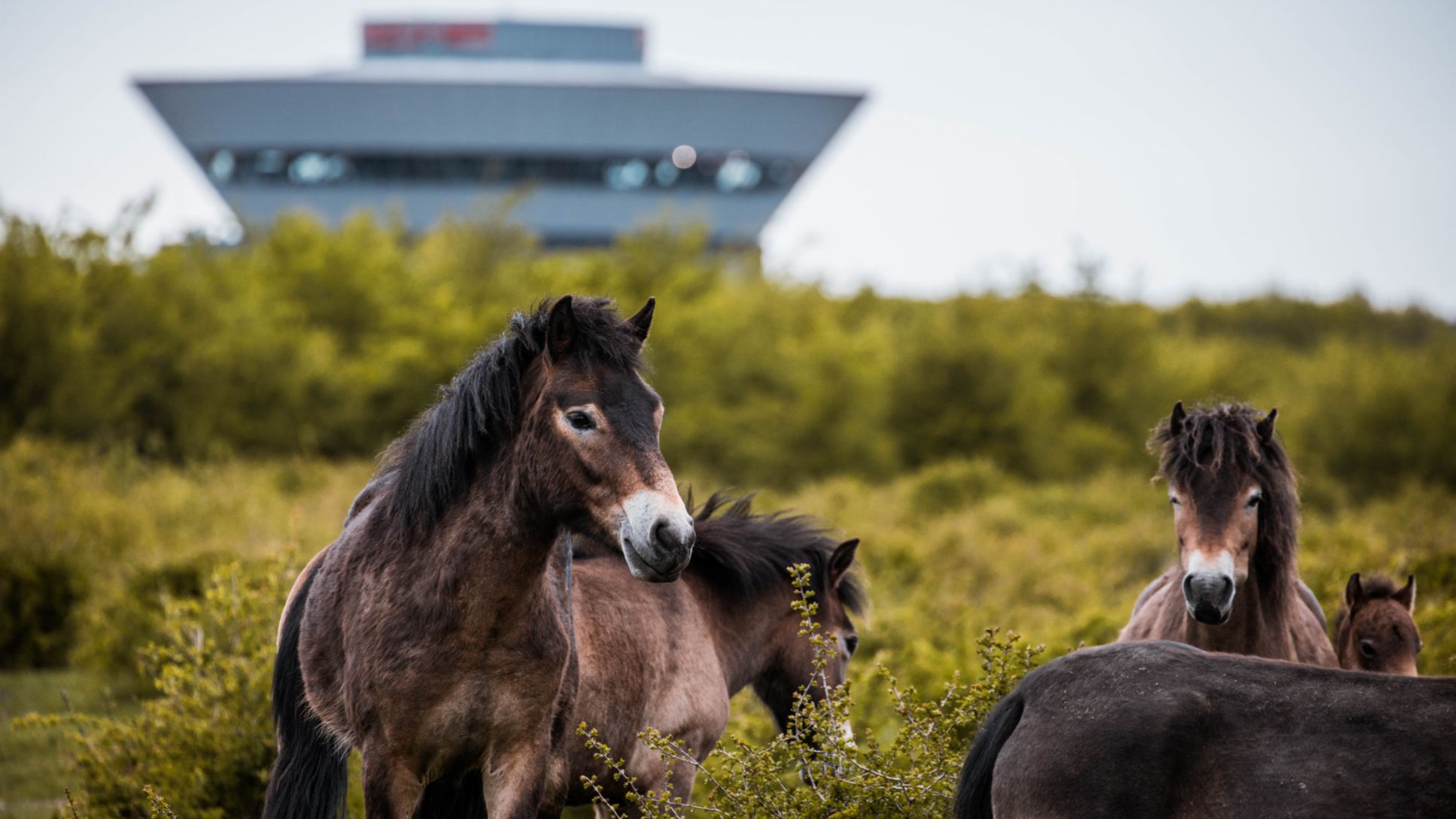Porsche is working towards net carbon neutral across the value chain for newly built cars by 2030. One core element of this target is the company’s vision of a Zero Impact Factory – a factory with the lowest possible negative impact on the environment. This holistic concept comprises economic, environmental and social aspects, and its goals include the promotion of a circular economy, biodiversity and air quality. To this end, Porsche aims to make consistent improvements in all areas, from resource and material efficiency to biodiversity. One important milestone has already been achieved: since 2021, the Porsche factory in Leipzig – along with the production sites in Zuffenhausen and Weissach – has been manufacturing on a net-carbon-neutral basis.
Using energy and resources
An important part of the sustainability concept is the way in which energy and resources are used. Since 2017, the Leipzig factory has used only green electricity. Part of the electricity used is produced at the site by four photovoltaic systems with a total output of around 9.4 MWp (megawatt peak). There is also a biomass heating plant in the immediate vicinity of the factory that covers approximately half of the room heating requirement.
To further reduce its environmental impact, Porsche has set up a resource efficiency programme in Leipzig. This includes regular energy inspections as well as workshops for the different disciplines. The successfully implemented measures include the ecological powdered rock filter system in the paint shop. Compared to a conventional water-based system, it reduces the energy required when applying the paint by up to 60 per cent. Another example is the state-of-the-art cooling of the robotic welding guns with heat recovery in the body construction facility. These enable the annual electricity consumption to be reduced.
Biodiversity is an important cornerstone
Biodiversity is another important cornerstone of the vision of a Zero Impact Factory. In Leipzig, Porsche has supported a range of projects to conserve the variety of species on the factory premises – for more than 20 years. On the factory’s 132-hectare off-road terrain, European bison and Exmoor ponies live alongside native wild species in harmony with nature and the factory. Since Porsche cultivated the site in 2000, the former military compound has been successively rewilded. With its cultivated water pools, wetlands and pastures, the terrain provides a natural living space for many species of plants and animals. As part of an initiative of the Saxony Land Foundation for Nature and the Environment to provide flowering fields for the region’s butterflies, an additional area of over 12,600 square metres of such fields were registered on the off-road terrain. The targeted preparation and maintenance of the flowering fields provide a habitat for insects. The insects, in turn, play an important role in the ecosystem of the terrain. In 2017, Porsche began relocating bees, and today around three million of them live here. In cooperation with a regional beekeeper, Porsche has been producing the factory’s own eco-certified Turbienchen® honey since 2019.
Alongside its economic and ecological commitments, Porsche Leipzig also engages with the local community in relation to sustainability issues. The sports car manufacturer is involved in education, sport, culture, as well as environmental and social issues in the region.


